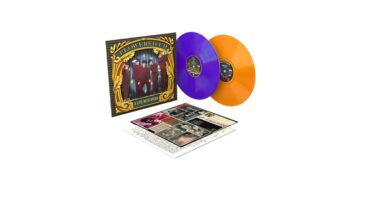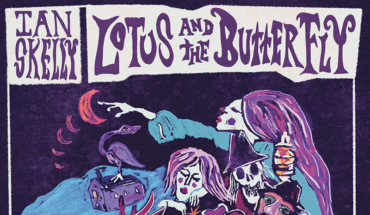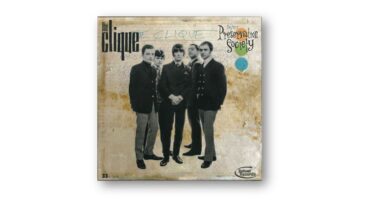When David Lynch announced back in 2010 that he would release his first album, ‘Crazy Clown Time’ the following year at the ripe age of 65, there was a fair degree of surprise. That’s no discredit to older musicians; one need only turn to Charles Bradley’s example of a career upswing at the same age to prove that starting a music career later in life rarely discounts an artist from making music as vital as the latest 20-something in his sister’s jeans with a cigarette hanging from his mouth. Still, we shouldn’t have been that surprised. While he is of course best known as director of such films as ‘Mulholland Drive’ and ‘Blue Velvet’ and as co-creator of influential TV show ‘Twin Peaks’, Lynch is also a bit of a Renaissance man. He has dabbled in painting, designed furniture, advocated Transcendental Meditation, owns a nightclub in Paris and even endorses his own line of hair care products. Alright, one of those might not be true. In the past however, all these endeavours including his previous musical experience in soundtracks prior to ‘Crazy Clown Time’ have been in service of his film career. At the time of writing, Lynch’s last full-length movie outing was 2006’s ‘Inland Empire’ so his time is clearly focussed on his music. And yet the question remains, why now?
The simple truth is David Lynch has always been a rock star. His larger than life persona (seriously, check out that coiffure) is inextricably connected to his film and television output, often overshadowing it. The term ‘Lynchian’ is used nowadays as a term for anything with surreal elements, noir influences and elliptical storytelling, though it does more actually to add to his mystique than offering an accurate description of his oeuvre. For Lynch, becoming a bluesman seems only a natural fit for an artist whose best works are deeply entwined with themes of the trappings of fame, the lure of the lawless, degenerate aspect of society and his own twisted sense of Americana viewed through his unique lens. All he needs now is the music to back up his own legend. ‘Crazy Clown Time’s’ mixture of wonky pop and mysterious soundscapes had its charms but ultimately was too dull an album to be considered worthy of Lynch’s reputation behind the camera.
Disappointingly, his latest offering ‘The Big Dream’ is just as unimaginative. It’s ironic given its title and Lynch’s famously innovative dream sequence involving Dale Cooper from Twin Peaks. For all its invention, this record might as well have been titled ‘The Big Sleep’. For those who can get past Lynch’s reedy singing voice which resembles the late Bertrand Russell speaking from the beyond with preverb straight out of ‘The Exorcist’, there is next to no instrumental variation to encourage anyone beyond the first few tracks. Just as the sight of Christopher Reeve (sorry Henry Cavill, it’s just not doing it for me) in those famous blue tights instantaneously conjures up the strains of John Williams’ ‘Superman’ theme and any mention of Peter O’Toole always brings to mind Maurice Jarre’s stirring music from ‘Lawrence of Arabia’, Lynch is forever musically associated with the muted, staccato twang of guitar from frequent collaborator Angelo Badalamenti’s Grammy Award-winning theme for ‘Twin Peak’. It’s a crutch he rests on far too frequently. Nearly every song here features bluesy guitar and industrial percussion straight out of Trent Reznor’s discarded demos and Lynch’s thin vocodered delivery, all smothered by a thick fog of electronic washes. Even when Lynch gives the guitar a rest, the tunes are still crushingly insipid. ‘Wishing Well’ is minor key trip-hop that sounds like all the worst spawns of Portishead’s sound from the mid-Nineties at the same time. By the time Lykke Li shows up to provide vocals on first single ‘I’m Waiting Here’, filling the role of Karen O on ‘Crazy Clown Time’, it’s too little, too late.
With an album as homogenous sounding as ‘The Big Dream’, any attempt to interrupt the monotony, however brief, is welcome. Both ‘Say It’ and ‘Sun Can’t Be Seen No More’ try to raise the tempo from the lifeless trudge of the majority of the record. They’re quite inoffensive bluesy shuffles that offer a modest change of pace. Most promising is a cover of Bob Dylan’s ‘The Ballad of Hollis Brown’. In the case of most Dylan covers, the further removed from the source material the artist takes it is equivalent to how interesting it is on its own merit. Lynch stated in an interview with Billboard that his version is “not really a cover of Bob Dylan as much as it is a cover of a Nina Simone cover of Bob Dylan”. While his version never comes close to the heights of either (his voice is barely a match for Dylan’s nasal whine, so comparison with Simone just seems unfair), Lynch’s music is clearly not without its audience and perhaps he is better served as an interpreter of songs rather than performing his own originals.
The reference points for ‘The Big Dream’ are obvious: Depeche Mode in the God-fearing days of ‘Songs of Faith and Devotion’, the Gothic Romantic warped blues of early Nick Cave and the Bad Seeds and the unearthly instrumental grandeur of This Mortal Coil. Listeners should really seek out those records to hear how much better this all could have sounded.
Elliott Homer
@ERHomer






